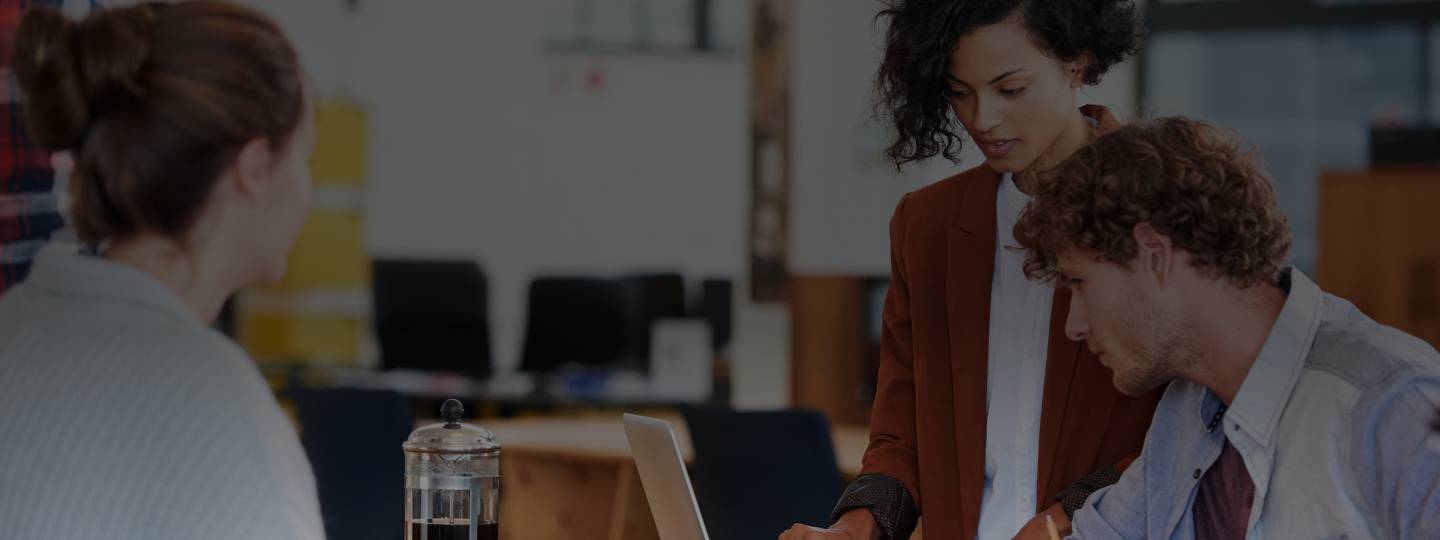

Social Safety Net Product Studio
This program was previously operated by Schmidt Futures. Historic Schmidt Futures activities were funded by diverse types of charitable and non-charitable capital to achieve impact.
About the Social Safety Net Product Studio
Benefits Access set out to promote shared prosperity by increasing the accessibility of U.S. government social safety net benefits (e.g. SNAP food support, housing assistance, child care), enabled by the internet, especially to marginalized populations. In 2022 the program and a group of philanthropic partners launched the Social Safety Net Product Studio to accelerate innovation and open access to over $100 million in safety net benefits for low-income people across the country.
For more information see the Social Safety Net Product Studio press release.
Members of the Social Safety Net Product Studio

Ameelio
Ameelio seeks to increase the ability for incarcerated students to access, enroll and participate in Pell Grant funded post-secondary programs by providing an online learning and management system designed for the carceral setting.
“By divorcing incarceration with profit, we at Ameelio are radically changing the definition of what it means to be incarcerated. Too often, we mistake cruelty for justice. In expanding access to education in the carceral setting, we believe that societal justice can only be achieved when there exists an option for everyone to better themselves. We are beyond excited to work with and alongside the wonderful team at Product Studio to actualize our vision!” – Zo Orchingwa, Ameelio
For more information, see the Ameelio website.

ASAP
The Asylum Seeker Advocacy Project (ASAP) is a nonprofit building a one-stop digital communication and information sharing platform helping asylum seekers navigate the complex web of available federal and state-level public benefits. ASAP is also a membership organization of nearly 400,000 asylum seekers from 175 countries, now living in all 50 U.S. states.
“ASAP is at a critical inflection point as we grow to reach half a million asylum seekers. We are so grateful to Schmidt Futures and the Product Studio for supporting ASAP and our members to access life-saving benefits and to navigate new lives in the United States.” – Swapna Reddy, ASAP
For more information, see the ASAP website.

Beam
Beam (formerly Edquity) provides a unified, end-to-end cash assistance platform that allows private and philanthropic institutions, non-profits, and governments to design applications, verify and process applicants, disburse payments, and track outcomes to achieve social impact goals.
For more information, see the Beam website.

Better Government Lab
The Better Government Lab is an academic team at Georgetown’s McCourt School of Public Policy. They seek to better measure, and understand, when people experience administrative burdens in their efforts to access vital safety net benefits by creating a validated scale. This administrative burden scale will help civic tech and government better evaluate whether efforts to make the safety net more accessible are working.
“We are delighted to be part of the Product Studio. The investment will be transformative in speeding up the creation and dissemination of tools to fix holes in the safety net” – Don Moynihan, Georgetown University
For more information, see the Better Government Lab website.

Datakind and New America
DataKind, a global nonprofit, is partnering with The Future of Land and Housing Program (FLH) at New America to address the problem of inefficient and inequitable delivery of housing assistance by simplifying housing loss data access, analysis and interpretation for housing assistance program administrators and community leaders, such that they can more efficiently target and deliver resources to households in need. They have developed and launched the open source Foreclosure and Eviction Analysis Tool (FEAT) to help local leaders better understand and track housing loss over time and will expand the functionality and accessibility of the tool over the coming months.
For more information, see the Foreclosure and Eviction Analysis Tool website.

Jump Credit
Jump Credit is building tools to help people identify what government benefits they qualify for and to demystify eligibility criteria, starting with SNAP Screener, a 50 state SNAP (food stamp) eligibility calculator. Potential applicants can answer a couple questions about their income and get an estimate of whether they are eligible, their benefit amount, and exactly why they got the result they did. Jump Credit has also built prescreeners for WIC, Medicaid, and CHIP — all offered as embeddable tools for nonprofit organizations.
“Thank you to the Product Studio for their support in helping us continue to build solutions to make benefits more accessible. I’m incredibly excited to connect and learn from other teams with a shared mission!” – Ben Molin, Jump Credit
For more information, see the SNAP Screener website.

Medicaid Innovation Collaborative (Acumen)
The Medicaid Innovation Collaborative (MIC) is a program that enables the Medicaid ecosystem to identify, adopt, and scale innovations that advance health equity and improve health outcomes for the most low-income, vulnerable, and diverse communities across the United States. Tech-enabled innovations in health care delivery have the potential to radically improve access, quality and address social needs for Medicaid patients, but many of these solutions are currently underutilized. MIC provides research, technical assistance, and access to leading market innovations to support the Medicaid ecosystem in implementing solutions that have measurable impact on outcomes and deep-rooted health disparities.
“The Medicaid Innovation Collaborative is excited to participate in the Safety Net Product Studio. We believe the program’s support, community of peers, and access to expertise will help MIC productize and scale our model. This support will ensure we can reach more low-income, underserved communities with high quality tech-enabled solutions that can address some of the biggest barriers to achieving optimal health and wellbeing.” – Veenu Aulakh, Medicaid Innovation Collaborative
For more information, see the Medicaid Innovation Collaborative website.

National Center for Entrepreneurship & Innovation
The National Center for Entrepreneurship & Innovation seeks to scale a successful innovation and design training curriculum by piloting in new environments, training new instructors, and creating a blended learning model with the goal of training 500 public servants in human centered design and innovation methods, tools and practices to improve social service delivery across state and federal agencies in the next two years.
For more information, see the National Center for Entrepreneurship & Innovation website.

Nava
With technical assistance from Montana WIC, Nava will create an open source participant recertification portal to reduce the burden of the six-month/annual recertification process on participants.
“The WIC program helps millions of families, but one of the most challenging parts of participating in WIC is the recertification process. Our goal is to make recertification simple and accessible for participants and staff. It’s an honor to work with the state of Montana and the Schmidt Futures Product Studio to not only launch this project, but share what we learn to support WIC agencies across the country so they can continue to serve the communities they know so well.” Rohan Bhobe, Nava
For more information, see the Nava website.

Semicolon Design Group
Semicolon Design Group seeks to create, distribute, and implement open-source/ready-made design files paired with operational interventions with the goal of improving communication/workflow between benefit recipients and states. A benefit recipient-centered approach will anchor its direction and visual design/engineering will innovate on the vast amount of plain language resources available today. Digital and paper mediums will be researched, designed, and produced along with an extendable design system that builds on The United States Web Design System (USWDS).

U.S. Digital Response (Grants Modernization)
U.S. Digital Response will scale and open source their federal funding-related tools that enable governments to unlock, measure results, and report on benefits for those most in need. Co-developed, tested, and in use with 8 states and 11 cities, these tools are easy to use, free, and adhere to federal requirements.
“The Product Studio will deepen the impact of USDR’s grant program, giving hope to government partners that good tools are possible to create, that a community of skilled people care enough to donate their time to create them, and that by collaborating, we can achieve far more together than we can alone.” – Mindy Huang, USDR
For more information, see the USDR website.

U.S. Digital Response (Unemployment Insurance)
U.S. Digital Response will develop a Spanish plain language translation tool and content guide to support federal and state unemployment insurance departments and increase equitable access to benefits for people with limited English proficiency. As a top priority for the U.S. Department of Labor, states are now preparing to boost their plain language and translation efforts through federal equity and navigator grants to fund improvements. This work will benefit people most vulnerable to unstable economic conditions and can serve as a model for improving language access for all public benefits.
“Without plain language translations for unemployment insurance applications that provide critical benefits to millions of workers with limited English proficiency, we risk increasing the disparity between English and non-English speakers. By ensuring consistent plain language translations exist for all languages, we have the opportunity to ensure that all workers have equitable access to this necessary lifeline.” – Marcie Chin, USDR
For more information, see the USDR website.
